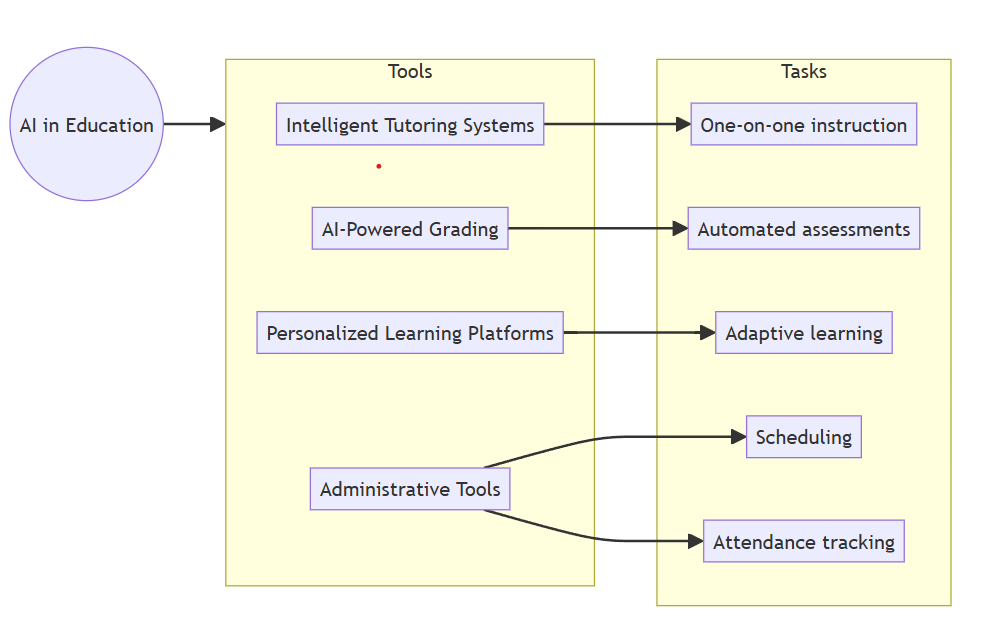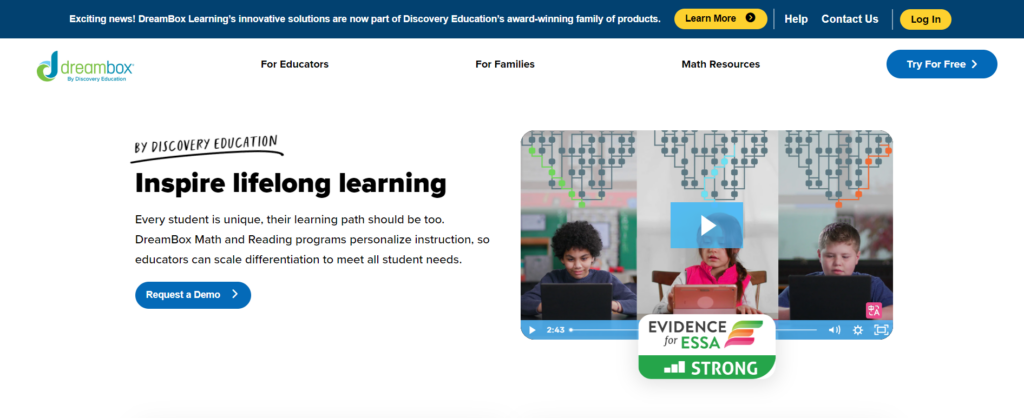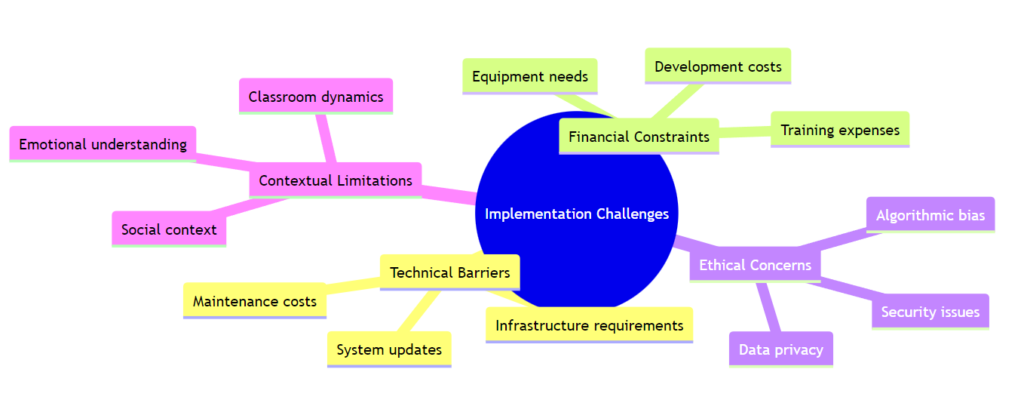Will AI Replace Teachers? A Comprehensive Look at the Future of Education
Table of Contents
In the age of artificial intelligence, there is increasing discussion about its potential to revolutionize education. One pressing question that many educators, parents, and policymakers are asking is: Will AI replace teachers? The direct answer to this question is: No, AI will not replace teachers.
Instead, AI will significantly augment their roles, transforming the way education is delivered. While AI in education offers numerous opportunities, such as automating administrative tasks, enhancing personalized learning, and providing real-time feedback, human teachers remain essential to the educational process. Teachers bring emotional intelligence, mentorship, and creativity to the classroom in ways that AI cannot replicate.
The Rise of AI in Education

AI in education is rapidly evolving. Its applications are already changing the way teachers teach and how students learn. From personalized learning platforms to intelligent tutoring systems and automated grading tools, AI is reshaping the educational landscape. However, these technologies are not designed to replace educators; rather, they are intended to assist them in improving student outcomes.
- Intelligent Tutoring Systems use algorithms to offer personalized, one-on-one instruction to students, providing tailored lessons and feedback based on their progress. Learn more about intelligent tutoring systems here.
- AI-powered Grading Tools automate the grading process, allowing teachers to focus on more impactful teaching tasks by reducing the time spent on routine assessments.
- Personalized Learning Platforms adjust the learning pace and content to suit individual students, helping them progress at their own speed and ensuring no one is left behind.
In addition, AI helps streamline administrative tasks such as scheduling and attendance tracking, enabling teachers to dedicate more time to teaching and student engagement.
Why AI Will Not Replace Teachers
While AI offers a range of tools to improve efficiency and effectiveness in education, it cannot replace the vital human elements that teachers provide. Here’s why:
1. Emotional Intelligence and Human Connection
Teachers excel at building personal relationships with students, understanding their emotional and social needs, and providing guidance in ways that AI cannot. The human connection that teachers form with students is essential for fostering a supportive, nurturing learning environment. Emotional intelligence, empathy, and the ability to inspire are qualities that AI cannot replicate.
2. Critical Thinking and Creativity
AI can assist with personalized learning, but it cannot inspire the development of critical thinking or creativity. Teachers are experts in encouraging students to engage with complex ideas, think critically, and solve problems in innovative ways. These higher-order skills are crucial for students’ success in the modern world and are areas where AI falls short.
3. Cultural Context and Ethical Judgment
Teachers bring an understanding of cultural nuances, societal values, and ethical considerations to the classroom, making them adept at handling diverse classrooms. They navigate the complexities of human behavior and adapt their teaching styles to meet the needs of each student—skills that AI cannot fully replicate.
How AI Can Support Teachers
AI’s primary role in education is not to replace teachers, but to enhance their work. Here are several ways AI can help educators:
1. Automating Routine Tasks
AI can handle time-consuming administrative duties like grading and attendance tracking, allowing teachers to focus more on instruction. AI-powered tools can also assist with lesson planning, helping teachers organize materials and create engaging content.
2. Personalized Learning
AI systems can analyze students’ learning habits and performance to offer tailored learning experiences. These tools can recommend resources or adjust difficulty levels based on individual student needs, helping teachers provide personalized support in a way that is scalable. An example is DreamBox, an adaptive math program that uses AI to personalize lessons.

3. Data-Driven Insights
AI systems can track student progress and provide teachers with detailed analytics. These insights allow teachers to better understand student performance, identify areas of struggle, and adjust their teaching methods accordingly. Data-driven decision-making can lead to more effective teaching strategies and improved learning outcomes.
Challenges to AI Replacing Teachers

Despite its potential, there are significant challenges to AI replacing teachers in the classroom:
1. Lack of Contextual Understanding
AI struggles to grasp the nuances of classroom dynamics. It cannot understand the unique needs of individual students or the shifting emotional and social contexts that are vital to effective teaching. This limits its ability to fully replace human teachers, who adapt to the ever-changing dynamics of a classroom.
2. Technical and Financial Barriers
Implementing AI on a large scale presents logistical and financial challenges. Many schools, particularly those in underserved areas, lack the necessary infrastructure to support AI tools. Additionally, the cost of developing and maintaining AI systems can be prohibitive, making it difficult for some institutions to fully benefit from these technologies.
3. Ethical Concerns
AI in education also raises significant ethical concerns, particularly around data privacy, security, and fairness. AI systems often require access to sensitive student data, and there are risks of data breaches or algorithmic biases that could unfairly affect students. These concerns must be addressed before AI can be integrated more widely in educational settings.
The Future of AI in Education
The future of AI in education looks promising, but it’s crucial to recognize that AI will never fully replace the human element in teaching. Instead, AI will act as a powerful support tool, helping teachers deliver more effective and personalized learning experiences.
Here’s a breakdown of how AI will interact with education and teachers in the future:
1. AI-Driven Enhancements in Education
AI technologies will assist in the following ways:
- Personalized Learning: AI will adapt to individual student needs, creating customized learning paths.
- Real-Time Assessments: AI can quickly analyze student progress and offer immediate feedback.
- Intelligent Tutoring: AI-powered tutors can provide one-on-one assistance to students, reinforcing lessons and answering questions.
2. Teachers’ Evolving Roles
As AI takes on more routine tasks, the role of the teacher will shift. This transformation can be summarized as:
| Traditional Role | Evolving Role |
|---|---|
| Information Provider | Learning Facilitator |
| Lecturer | Guide for Critical Thinking |
| Task Manager | Mentor and Emotional Support |
- From Knowledge Providers to Learning Facilitators: Teachers will focus more on guiding students through the learning process, fostering critical thinking, and engaging them in active learning.
- A Hybrid Model: AI will assist teachers with administrative tasks and offer personalized learning tools, allowing teachers to focus on human-centered aspects like mentorship and emotional support.
3. Focus on Higher-Order Skills
With AI handling repetitive tasks, teachers will have more opportunities to focus on skills that AI cannot replicate:
- Creativity
- Problem-Solving
- Collaboration
This shift will enable teachers to prepare students for a world that is increasingly influenced by AI, focusing on nurturing these vital skills.
Bonus Tips: Revolutionizing Career Development with Jobright.ai
Beyond the classroom, AI is also transforming career development. Jobright.ai, for example, helps individuals in the job market by leveraging AI to analyze resumes, generate personalized cover letters, and suggest job opportunities. While this is not an educational application, it highlights how AI can augment human effort. Just as AI supports educators by taking on repetitive tasks, tools like Jobright.ai can help job seekers focus on their strengths while AI handles more mundane aspects of job applications.
